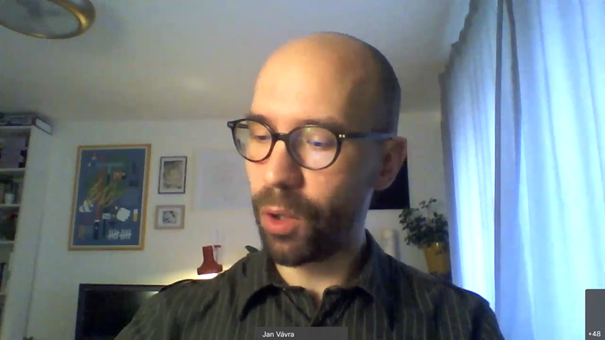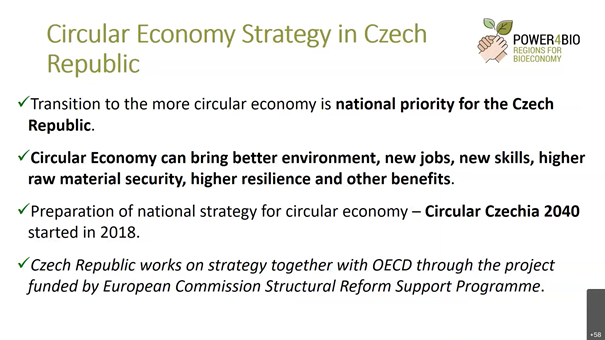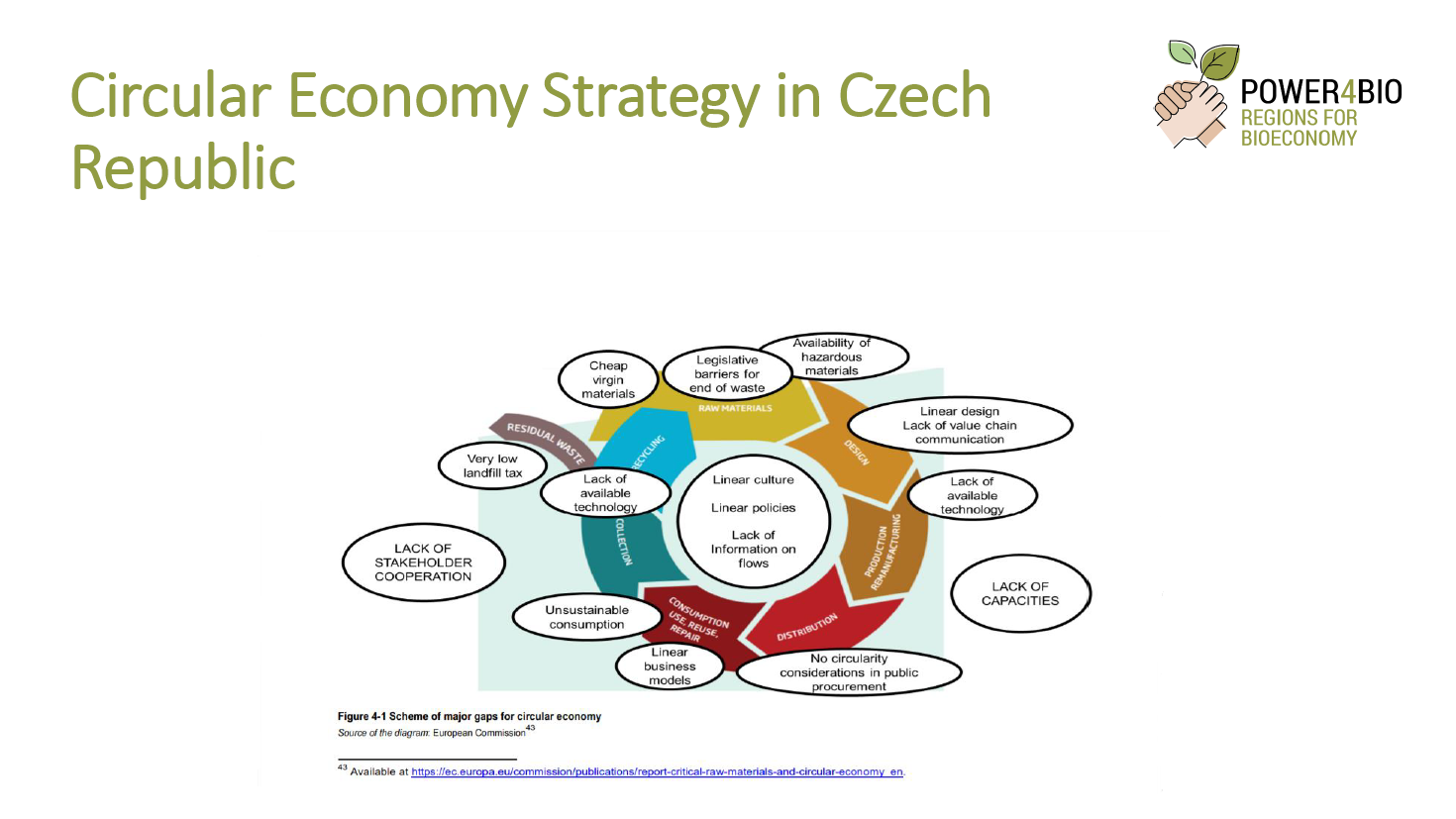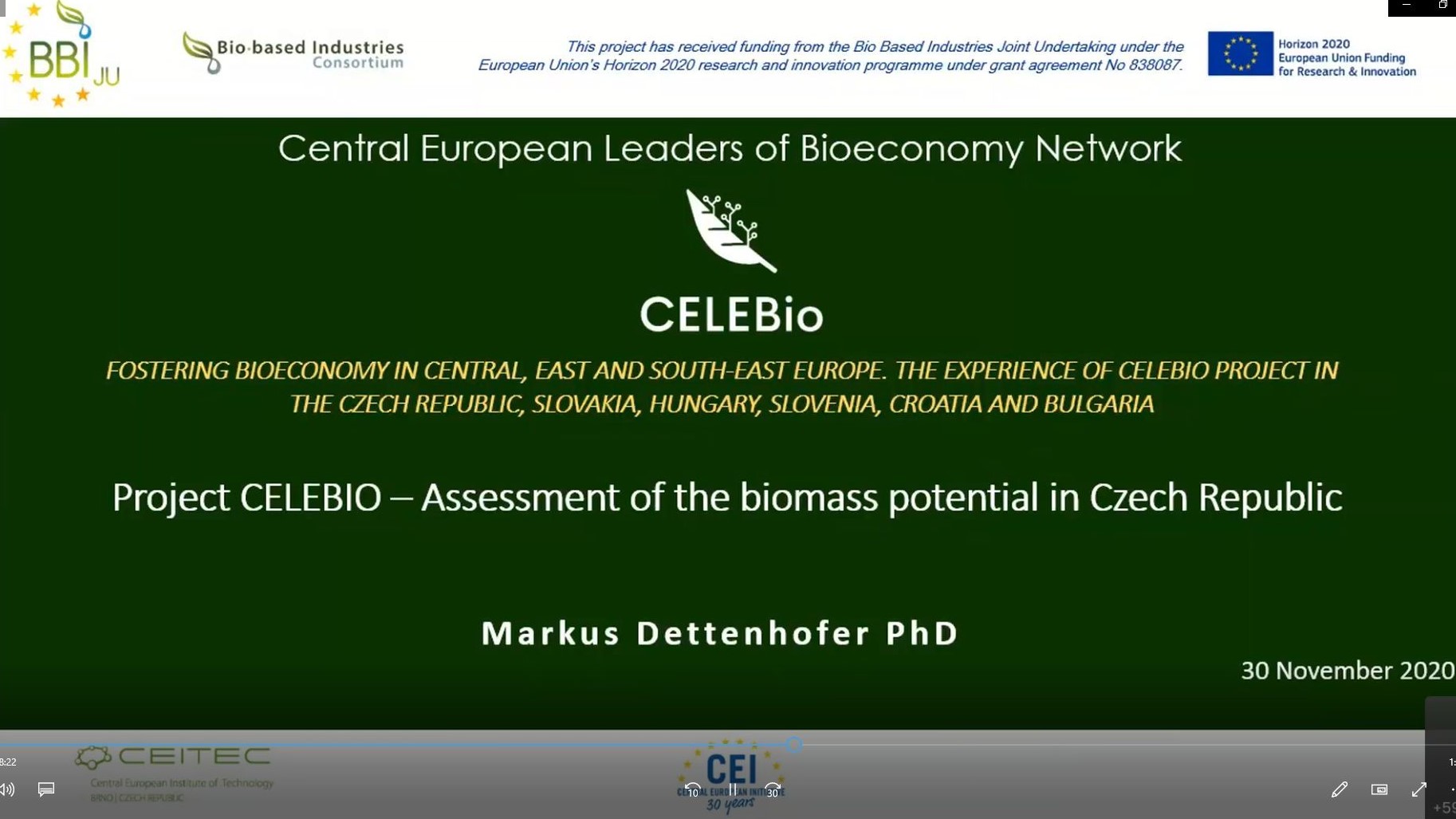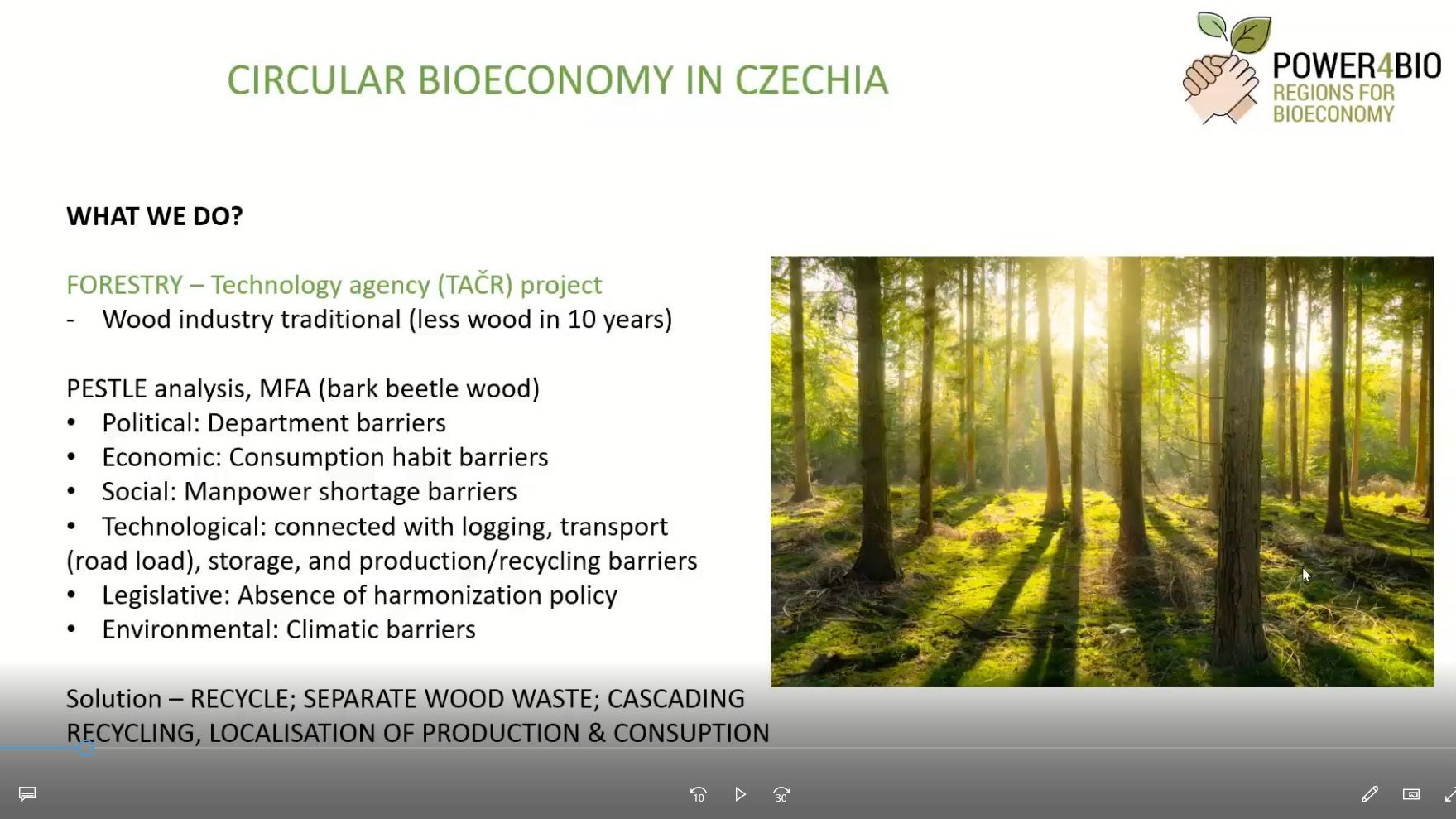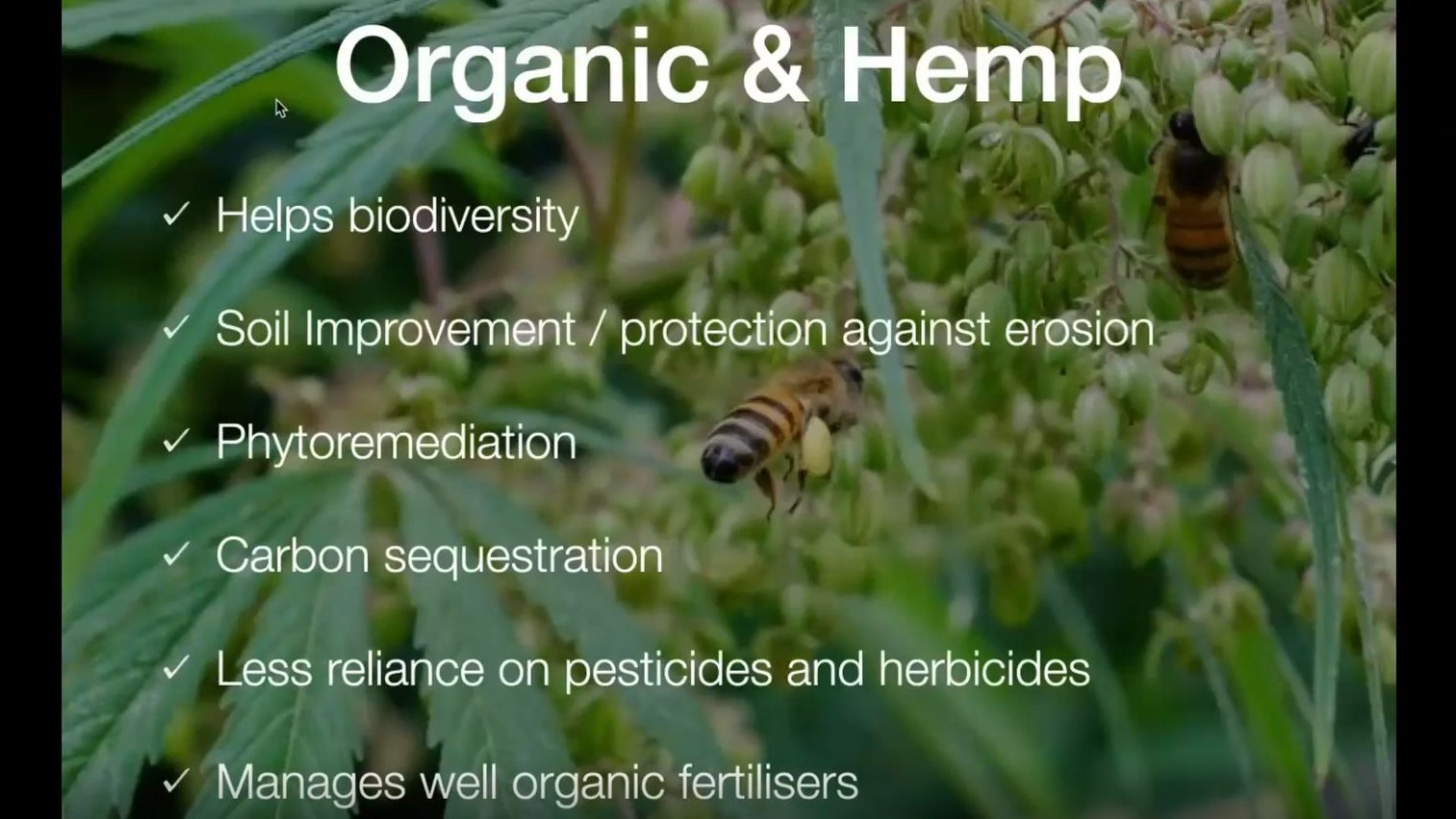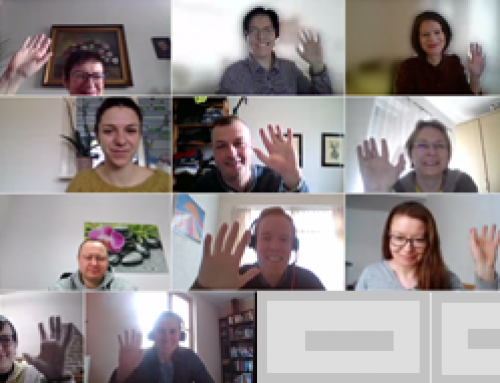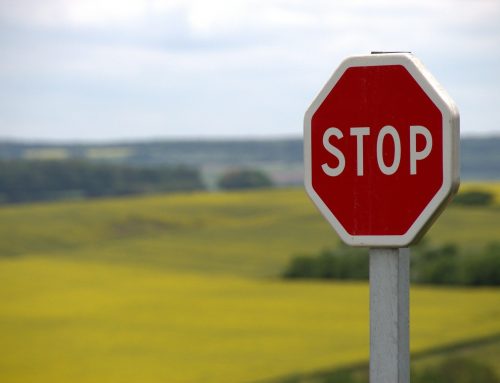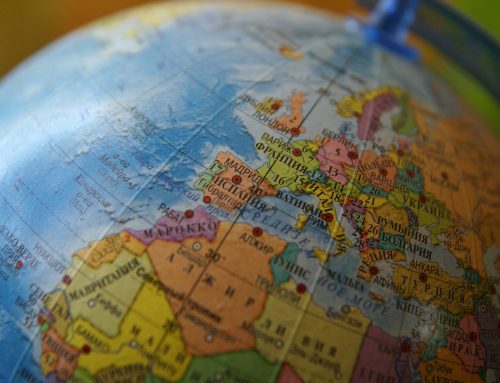Report about POWER4BIO cross-visit to South Bohemia, Czech Republic
November 30 and December 1, 2020
Due to COVID 19, the cross-visit to South Bohemia was held online during two days: Nov 30 to Dec 1, 2020. These two days were divided into four thematic sections: I. Introduction into the political and economic support of bioeconomy in the Czech Republic and South Bohemian region, II. Situation within research and education activities in bioeconomy in the Czech Republic and South Bohemian region, III. Practical part of bioeconomy and regional bioeconomic activities, IV. Activities and results of work of Regional expert group RHB of South Bohemian region.
I. The political and economic support of bioeconomy in the Czech Republic and South Bohemia Region
The first day’s morning session gave an introduction into the political and economic support of bioeconomy in the Czech Republic and the South Bohemian region. All presentations were focused on different kinds of formal support from Czech Ministries and the Regional Government. The first two presentations from the Ministry of Environment and the Ministry of Agriculture gave a brief view into their policy as regards bioeconomy and circular economy. Following, two proposals were presented by regional representatives and spoke about cooperation and support of the POWER4BIO hub on the regional level.
Ing. Iva Blažková, Ph.D.: Activities in Bioeconomy, BIOEAST Initiative
Ing. Jan Jareš, JVTP: Regional position of bioeconomy in updated national and regional RIS3
Ing. Viktor Vojtko, Ph.D.: Ceske Budějovice bioeconomic activity
Results of the interactive cluster mind mapping
II. Situation within research and education activities in bioeconomy in the Czech Republic and South Bohemia Region
The second part of the first day session described the situation within research and education activities in bioeconomy in the Czech Republic and South Bohemian region. The research project CELEBIO focused on the potential for bioeconomy in the Czech Republic was presented at first. A forestry bioeconomy project dealing with forestry within national documents, was presented second. Activities within the Bioeconomy Platform of the Czech Republic and information about international bioeconomy courses organised in Economic Faculty closed the first day of the POWER4BIO cross-visit.
Markus Detenhoffer Ph.D.: Project CELEBIO – Assessment of the biomass potential in Czech Republic
Ratna Chrismiari Purwestri: Project NAZV – Comparison of forest bioeconomy strategies
doc. Ing. Hájek, Ph.D.: Bioeconomy Platform for the Czech Republic
Ing. Michaela Novotna: Regional contact agency and bioeconomy activities
Josef Maxa: Bioeconomy Courses – University of South Bohemia 2016-2019
III. The main examples of bioeconomy practice within the Czech Republic and South Bohemia Region
The second day of the cross-visit was more focused on the practical part of bioeconomy and regional bioeconomic activities. It was an attempt to fit more to the field trip part of a cross-visit under the conditions of a real meeting. This part of workshop was, similarly as the first day, divided into two parts.
The first session was devoted to the main examples of bioeconomy good practices within the Czech Republic and South Bohemian region. Activities within circular economy organised by Czech Institute of Circular economy were introduced, followed by alternative use of hemp presented by the president of Czech Hemp cluster. Information about wood bioeconomy was given by a representative from the Faculty of Forestry and Wood Sciences of the Czech University of Life Sciences Prague. The most advanced application of bioeconomy was showed by Nafigate corporation. Their representative introduced a very innovative approach of used food oil processing. The last presentation focused on potential for bioeconomy in biowaste from gardening.
Dagmar Milerová Prášková: Circular (bio)economy in the Czech Republic
Bc. Hana Gabrielová: How hemp activities enables The Green Deal
doc. Ing. Martin Jankovský, Ph.D.: Insulation material from recycled sources
Mgr. Vlaďka Matušková, MSc.: Hydal project
IV. Practical activities and results of work of our regional expert group (RBH)
The last part of two days’ cross-visit presented the practical activities and results of the work of the Regional expert group RHB of the South Bohemian region. This session started with a short movie presenting three good examples of bioeconomic practice within the, followed by presentations of the three main actors representing biogas treatment, algae research and practice and aquaponics as an example of long-term sustainable food production.
This section was closed by the main outcomes from the RBH working group as regards to strategy and visions for a regional bioeconomic strategy. The creation of a South Bohemian Association for bioeconomy as legal entity was announced as the main outcome of the RBH work.
prof. RNDr. Jiří Masojídek: Microalgae biotechnology
doc. Ing. Jan Mráz, Ph.D.: Aquapony as an example of sustainable production of food
Ing. Miroslav Kajan: Biogas station – decentralized sources of renewable energy
doc. PhDr. Miloslav Lapka: Outcomes of our RBH group work
At the end of each section, the interactive cluster mind mapping was organized. It was made in a short questionnaire form. The main outcomes from two days’ presentations, discussions and cluster mind mapping was summarized as closing remarks and outcomes. The main outcomes could be characterized as the main weak and strong points as regards conditions of bioeconomy in the Czech Republic and South Bohemian region.
The main message is that the state policy of support for the bioeconomy is based on the approach that the bioeconomy is another of many alternatives, quite analogous to renewable energy sources. This is not a systemic change in thinking and management, which is needed as a real way into bioeconomy practice.


